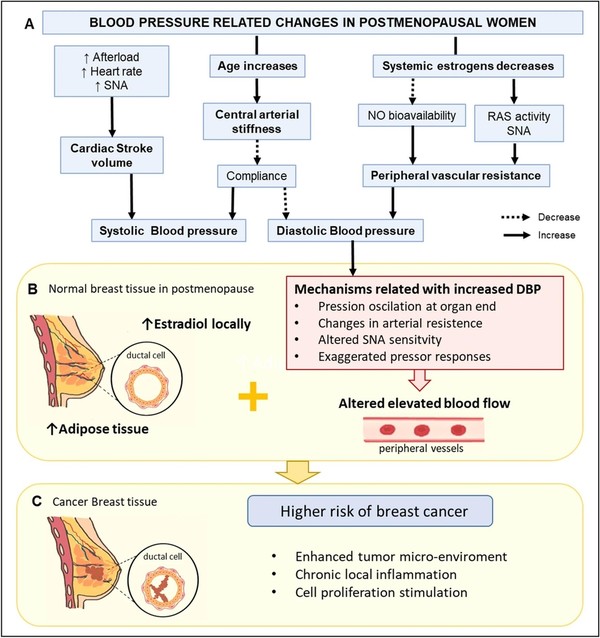Middle-aged women with high diastolic blood pressure are 1.7 times likelier to develop breast cancer, so they need to be more careful with their usual BP control, a study said Wednesday.
Hypertension and breast cancer are two of the most prevalent chronic diseases globally. Moreover, according to the study, about 45.4 percent of breast cancer incidence corresponds in Asia, and multifactorial environmental and genetic factors cause both diseases.

Previous epidemiological evidence suggests that hypertension is associated with breast cancer risk. However, previous studies disregard blood pressure components, diastolic and systolic BPs, in the healthy population, according to the study conducted by Professor Khang Dae-hee of the Preventive Medical Room at Seoul National University College of Medicine.
The team examined the relationship between systolic and diastolic BP and breast cancer risk in a Korean population-based prospective cohort.
Researchers measured the systolic and diastolic blood pressure of 73,031 women from the Health Examinees Gem Study and evaluated associations between systolic and diastolic blood pressure with overall breast cancer, premenopausal and postmenopausal status were evaluated.
Consequently, 858 breast cancer cases were recorded for a median follow-up period of nine years. Compared with the normal diastolic BP category (< 85 mmHg), the normal-high diastolic BP category was positively associated with breast cancer risk in postmenopausal women but not premenopausal women.
Specifically, there was a 40 percent higher risk of breast cancer for all women in the 85 to 89 mmHg diastolic BP group compared with the lowest diastolic BP category. However, the risk increased up to 73 percent in postmenopausal women in the diastolic BP 85-89 mm Hg group.
Additionally, they also found that systolic BPs did not show a significant association with breast cancer risk.
The research team hypothesized that postmenopausal production of estrogen hormones altered blood flow in breast tissue and stimulated chronic inflammation or cell proliferation, creating a microenvironment where tumors can grow.
“Systolic blood pressure is often regarded as more important. However, the study showed that diastolic blood pressure management is also very important in postmenopausal women," Professor Kang said, "As various studies have shown that high blood pressure increases the risk of various malignant tumors like breast cancer, diastolic BP levels must be managed for secondary cancer prevention."
The study was recently published in the international journal Scientific Reports.

